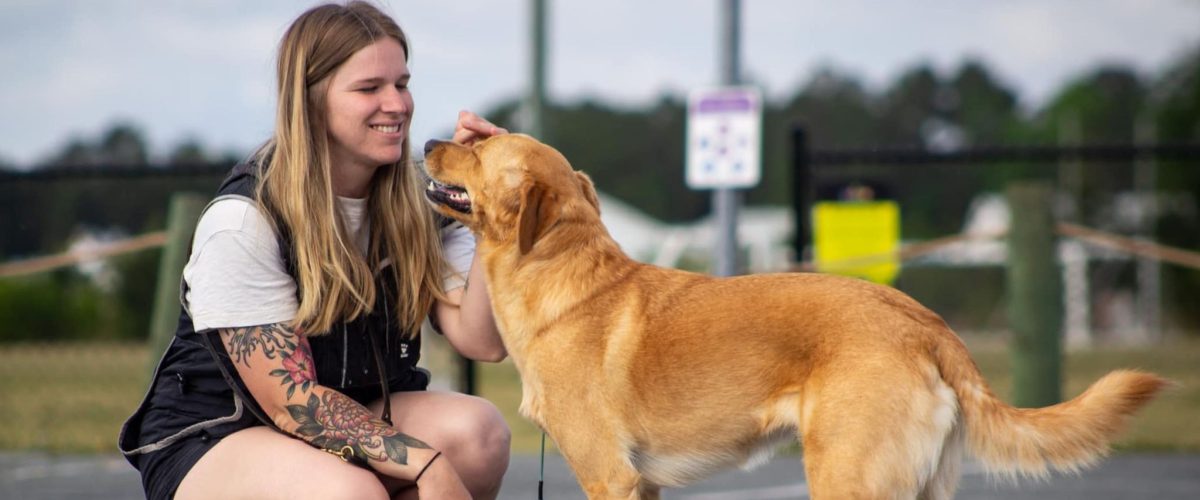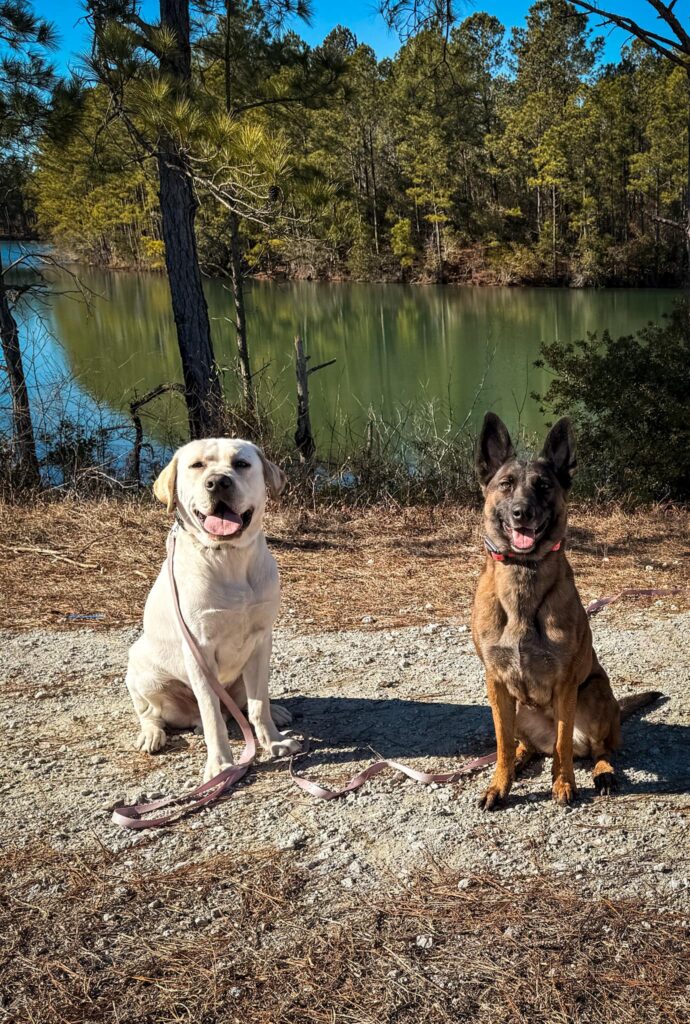Training your dog is one of the most rewarding experiences for both you and your furry companion. A well-trained dog is not only happier but also safer and more enjoyable to have around. With countless dog training programs available, finding the right one can feel overwhelming.
This guide will walk you through everything you need to know to select the best dog training program in Wilmington, NC.
Types of Dog Training Programs
Puppy Training
Puppy training is designed for younger dogs to instill good habits early. It typically includes socialization, crate training, and basic commands.
Obedience Training
Dog Obedience training focuses on basic commands like sit, stay, come, and heel. It’s ideal for dogs of all ages and is often the foundation for more advanced training.
Dog Aggression Training
Dog aggression training is designed to address and manage aggressive behaviors, such as growling, biting, or excessive barking. It focuses on socialization, impulse control, and reducing fear-based aggression through positive reinforcement techniques.
Board and Train
Dog Board and Train is a specialized type of dog training program where the dog stays with the trainer for a set period (usually a few weeks). During this time, the dog receives intensive training, and the owner typically gets follow-up instructions on how to maintain and reinforce the training at home.
Private Dog Training
Private dog training sessions are one-on-one dog training classes tailored to the individual dog’s needs, allowing the trainer to focus solely on your dog’s specific issues. This type of training provides personalized attention and is suitable for addressing specific behavioral concerns, basic obedience, or advanced skills.
How to Evaluate Dog Training Programs
1. Research the Trainer’s Qualifications
Look for certified dog trainers with experience and a positive track record. These organizations are some of the leading certifying bodies in the field of dog training.
- International Association of Canine Professionals (IACP)
- Certification Council for Professional Dog Trainers (CCPDT)
- Association of Professional Dog Trainers (APDT)
- National Association of Dog Obedience Instructors (NADOI)
- American Kennel Club (AKC) Canine Good Citizen Program
- American Association of Pet Trainers (AAPT)
Certifications from these groups ensure that trainers meet specific standards and have the necessary skills to work effectively with dogs and their owners.
2. Dog Training Methods Used
- Positive methods would encompass techniques like positive reinforcement, clicker training, and reward-based training.
- Balanced methods could include a mix of positive reinforcement and mild corrections, ensuring that undesirable behavior is addressed while maintaining the dog’s well-being.
3. Positive Reviews and Testimonials
Check reviews from other pet owners. Word-of-mouth recommendations are invaluable.
4. Transparent Pricing
A reputable program will have clear pricing and no hidden fees. Ensure you understand what’s included.
5. Emphasis on Safety
The program should prioritize the safety of all dogs and owners during training sessions.
6. Customization Options
Every dog is unique. Opt for a program that tailors its techniques to your dog’s specific needs, age, and breed.
5 Key Questions to Ask a Potential Dog Trainer
1. What Techniques Do You Use?
Understand whether they use positive reinforcement, balanced training, or another method.
2. Can I Observe a Class?
Observing a session can give you insight into the trainer’s approach and how they interact with the dogs.
3. What’s the Class Size?
Smaller class sizes often mean more individual attention for your dog.
4. Do You Offer One-on-One Training?
For dogs with specific challenges, individual training may be more effective than group sessions.
5. What is your experience and qualifications?
Ask about the trainer’s credentials, certifications, and experience to ensure they are qualified to handle your dog’s specific needs.
Common Mistakes to Avoid When Choosing a Program
Choosing Based on Price Alone
While affordability is important, the cheapest option may not always provide the best results.
Ignoring Your Dog’s Needs
Consider your dog’s personality, age, and behavioral challenges when selecting a program.
Overlooking Dog Trainer Credentials
Unqualified trainers can do more harm than good. Always verify their experience and certifications.
3 Major Benefits of Professional Dog Training
1. Faster Results
Professional trainers have the expertise to address behavioral issues more efficiently than DIY methods.
2. Expert Guidance
They provide valuable tips and resources to help you continue training at home.
3. Improved Socialization
Group training classes expose your dog to other pets and people, reducing anxiety and improving behavior in social settings.
Is Professional Dog Training Worth It?
Long-Term Value
While professional training can be costly upfront, it often saves time and effort in the long run by preventing ongoing behavioral problems.
Personalized Support
Trainers can offer tailored solutions to address your dog’s specific challenges.
Setting Your Dog Up for Success
Choosing the right dog training program is essential for raising a well-behaved and happy dog. By understanding your dog’s unique needs, evaluating trainers carefully, and committing to consistent reinforcement, you’ll ensure long-term success. Whether you choose professional help or the DIY route, your efforts will strengthen your bond and create a more enjoyable life together.
Ready to take the next step? Contact AvidDog Dog Training for professional dog training in Wilmington, NC.
Jenny Klamm, owner of AvidDog Dog Training, has been professionally providing dog training in Wilmington, NC, and surrounding areas since 2017. Passionate about ethical and effective training, she specializes in rehabilitating dogs with aggression, anxiety, and reactivity. Jenny helps dog owners build trusting bonds with their pets through compassionate training. Book your free consultation today! https://aviddogtraining.com/contact-us/.




